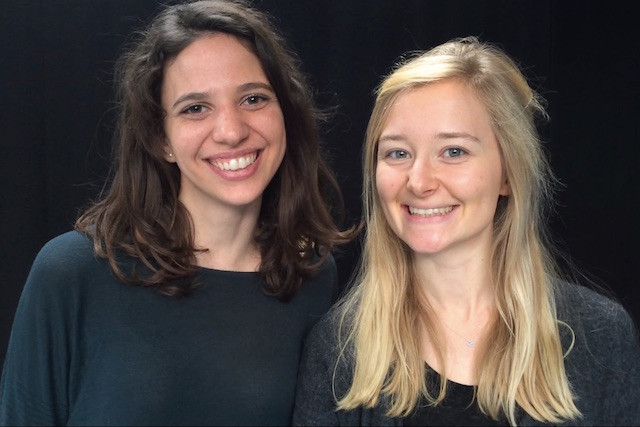When former European school student Constance Piat ventured into the Calais jungle migrant camp as a volunteer teacher in September 2016, she had little idea what she was getting herself into. “We did a Facebook search and found the École laïque du Chemin des Dunes. They told us to put their address in our GPS and come over,” Piat explains.
Despite reservations of her family, she and friend Solène Burtz drove five hours to the notorious Calais jungle, where at one point around 10,000 migrants were thought to be living.
There they were greeted with a scene reminiscent of shanty towns in Brazil: a wasteland surrounded by police cars and all around makeshift housing. “They put me in front of a blackboard. I had never taught French before. And they said ‘teach!’”. The two young women taught for just over three weeks, an experience which would stay with them for months afterwards.
“We thought about what we learned from this experience and what others could learn,” says Piat. The challenge for her was deciding where to stand in the debate. “We knew people in Calais were angry about the camp… In another way we saw police being violent against migrants. We heard stories about mafias and children being abused. This whole mix was difficult for us to form an opinion because we can understand all sides of the debate.”
The friends were, however, deeply touched by the motivated people they had taught, particularly the young adults whose potential was being wasted because they were not able to integrate locally. They were also aware, having launched a fundraising drive to buy materials for the school, that there was a lot of goodwill in local host communities.
After the Calais jungle closed, Piat and Burtz began formulating their own integration project--“Défibus”. “We want to travel around Europe to make people collaborate on dynamic, short-term projects for young people to meet one another,” Piat explains. “We want to do it for host communities and refugees to meet and be put in touch with local charities.”
The pair are currently working on raising funds for the project. In May they will conduct a pilot in Lille, where young adult refugees will work with local residents to make a music video over two days. They will likely do a second pilot in Paris before beginning a project in June/July proposing similar creative challenges to the beneficiaries.
The first stop on their European tour will be Luxembourg, where they will work with local charities Hariko and Passerelle.
Piat adds: “In parallel we will do a project with portraits of the people and local groups we work with, sort of like a ‘Humans of Europe’… It’s more to keep a trace and maybe for people who did not come to our launch to see what’s out there.”
This article was first published in the May 2017 issue of Delano magazine. Be the first to read Delano articles on paper before they’re posted online, plus read exclusive features and interviews that only appear in the print edition, by subscribing online.
